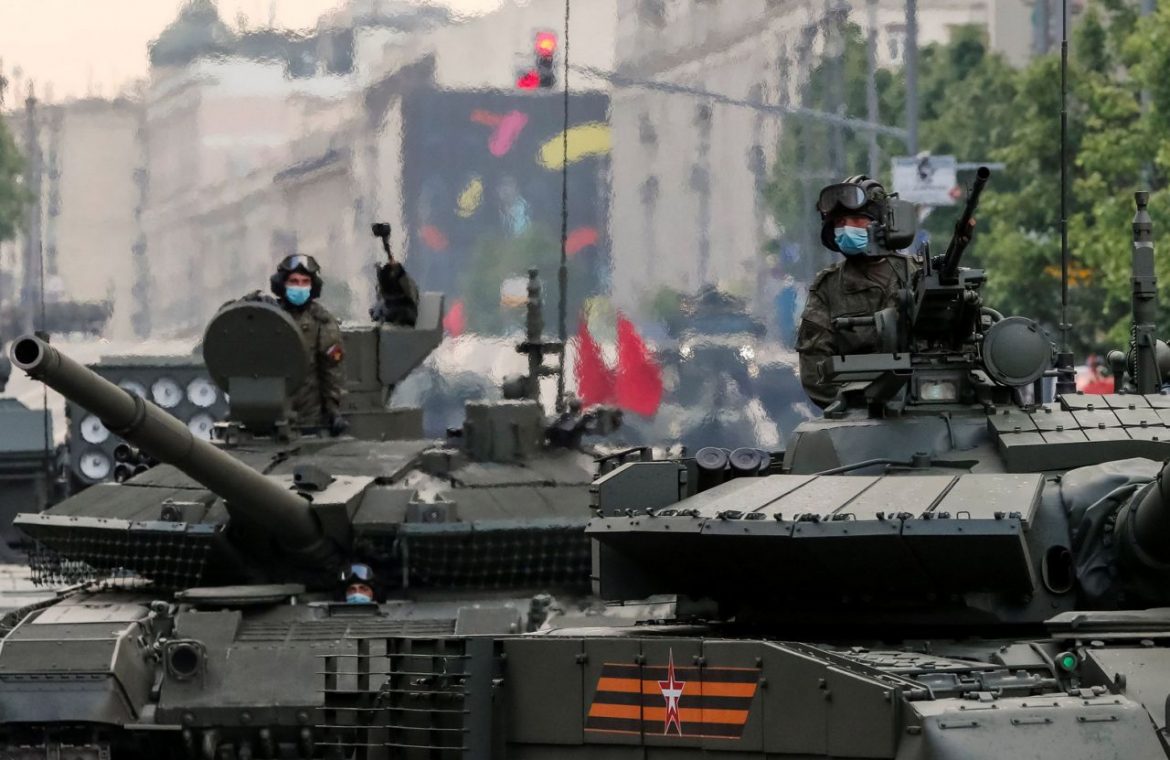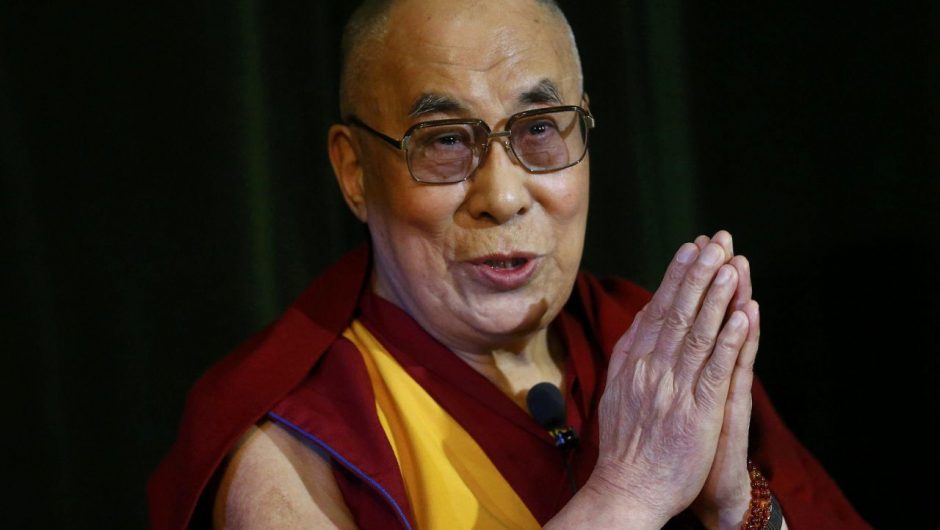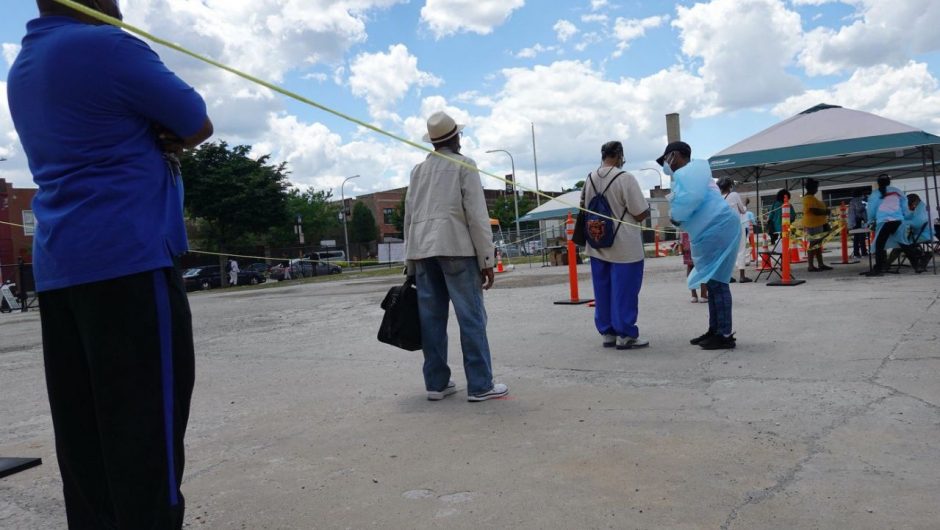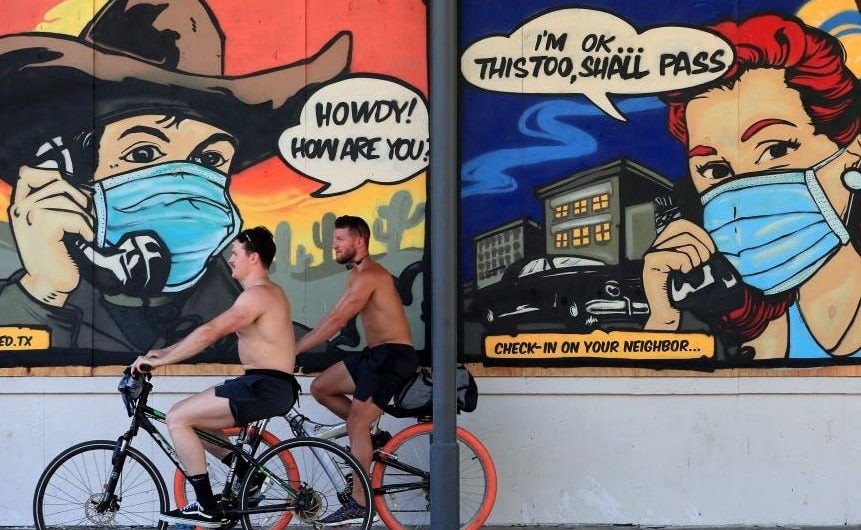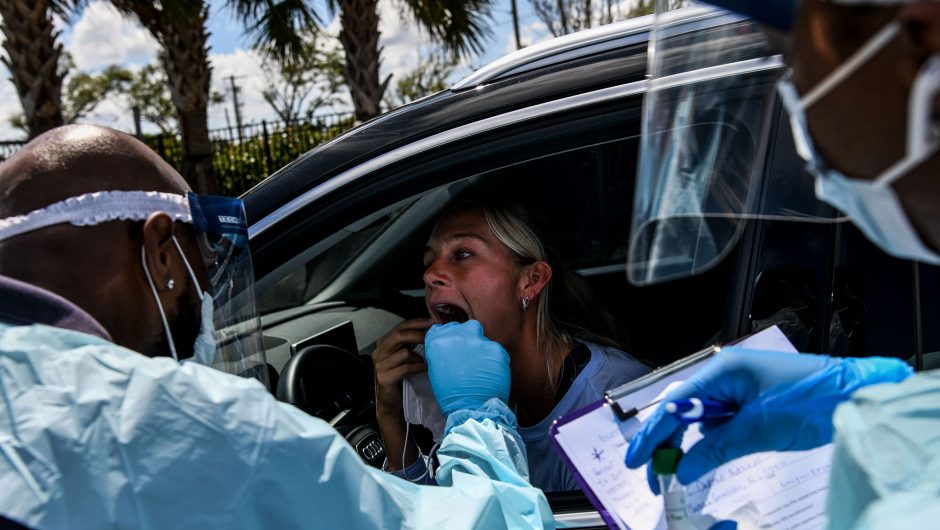MOSCOW — After months of coronavirus-related setbacks, Russian President Vladimir Putin was set to preside Wednesday over a long-awaited military blowout to celebrate 75 years since Nazi Germany’s defeat in World War II.
But as Russia emerges — perhaps prematurely — from almost three months of lockdowns to curb the spread of the virus, the parade has taken on additional meaning for the Kremlin: as a declaration of victory over the virus itself and a turning point in Putin’s reign.
The parade will kick off a weeklong nationwide vote on a series of proposed constitutional amendments that, among other things, would reset presidential term limits — allowing Putin, 67, if he so desires, to rule Russia until 2036.
In a triumphant address on the eve of the parade, Putin congratulated the nation on “the dignity with which you, the citizens of Russia, have passed through the most dangerous phase of the epidemic.”
“We are driving the virus back,” he declared, but he also warned that the pandemic isn’t over.
“We are still in for a rough ride. We have yet to nip it in the bud. But the end is in sight. We can soon return to normal life,” he said. “And I hope that together we can solve any problem that arises in the future. We have already demonstrated we can do that.”
Full coverage of the coronavirus outbreak
Putin announced the parade a month ago, on May 26, “since the situation in the country as a whole, including in the majority of the regions and in the armed forces, remains stable and is stabilizing in other regions after we reached the peak of the outbreak.”
But since then, Russia’s coronavirus situation hasn’t markedly improved. Rather than reporting 9,000 new cases per day, as was the case a month ago, Russia’s daily new cases in recent days have fluctuated from 8,000 to 7,500.
Opposition figures, such as Alexei Navalny, have pointed to the figures and argued that the Kremlin is moving ahead with the parade to convince residents that it is safe to go out and participate in the constitutional referendum, which is scheduled for July 1, with polls opening Friday.
Story continues
“Everyone knows that this madness is being carried out for one person,” Navalny wrote in a blog post Monday. “This parade has one viewer. He is sitting in his bunker. He stayed there for two and half months because he was afraid of getting infected himself.”
Two weeks ago, bowing to pressure from the Kremlin, Moscow Mayor Sergei Sobyanin unexpectedly lifted the city’s lockdown, which on paper had been one of the world’s strictest. Since then, officials from the Kremlin on down have encouraged residents to return to normal life.
They’re being told it’s safe to return to restaurants and to their workplaces — and as of Tuesday, they’re even being told it’s safe to go back to the gym. But, in the Kremlin, greater precautions remain to keep Putin isolated from the virus even as Russians are encouraged to go to the polls.
With confused messaging swirling around the Russian media, almost no one seems to be wearing masks or taking distancing measures of any kind in central Moscow as people flood back into shopping centers, as well as terraces for summer drinks.
World War II veterans who will sit next to Putin at Wednesday’s parade have been quarantined for two weeks at a resort outside Moscow. And state media reported that everyone who visits Putin at his private residence must enter through a disinfection tunnel.
Moreover, the troops themselves, who will be on Red Square with Putin and other Russian leaders, will wear masks after having been quarantined during rehearsals for the parade.
Download the NBC News app for breaking news and alerts
All of that, Navalny argued, is intended to set the tone for the constitutional vote: “He personally needs this parade, because he wants to start a vote to reset his term limits with something solemn.”
Navalny doesn’t appear to be alone in his skepticism. Even Sobyanin has urged Moscow residents to stay home and watch the parade on television, reminding them that it isn’t yet safe (or even officially permitted) to gather in masses.
And in at least 20 cities, authorities have canceled their Victory Day parades outright, citing concerns over the epidemic in Russia — which, despite Putin’s declarations of victory, remains the world’s third-largest outbreak.


